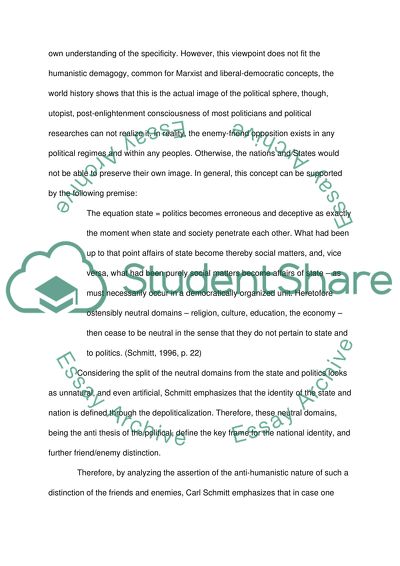Cite this document
(“Analyse Schmitt's friend/enemy distinction Essay”, n.d.)
Analyse Schmitt's friend/enemy distinction Essay. Retrieved from https://studentshare.org/history/1469765-analyse-schmittyies-friend-enemy-distinction
Analyse Schmitt's friend/enemy distinction Essay. Retrieved from https://studentshare.org/history/1469765-analyse-schmittyies-friend-enemy-distinction
(Analyse Schmitt's friend/Enemy Distinction Essay)
Analyse Schmitt's friend/Enemy Distinction Essay. https://studentshare.org/history/1469765-analyse-schmittyies-friend-enemy-distinction.
Analyse Schmitt's friend/Enemy Distinction Essay. https://studentshare.org/history/1469765-analyse-schmittyies-friend-enemy-distinction.
“Analyse Schmitt's friend/Enemy Distinction Essay”, n.d. https://studentshare.org/history/1469765-analyse-schmittyies-friend-enemy-distinction.


